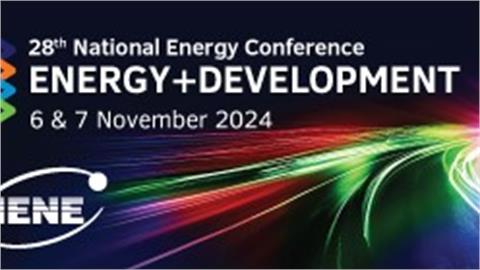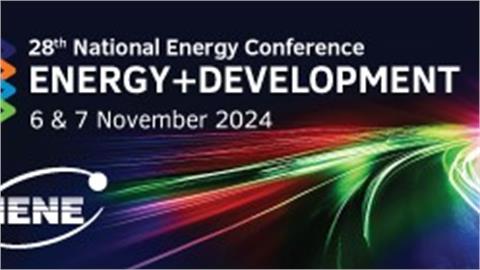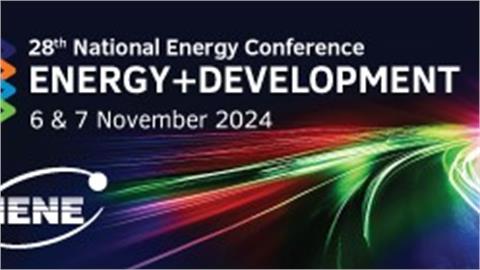A select group of senior executives, government officials and oil and gas experts from ten different countries of the region assembled in Athens on October 31st and November 1st for an intensive 1 ½ day closed meeting to review progress and exchange information on latest advances on hydrocarbon exploration in the wider geographical area comprising the Adriatic, the Black Sea and the East Mediterranean. This highly stimulating workshop was convened by the Institute of Energy for SE Europe (IENE), an Athens-based think tank, for the second year running. This unique event brought together some of the top experts of the region with a total of 65 people attending this important regional gathering.
Opening the proceedings of the Workshop, Greece’s Environment and Energy. Mr. John Maniatis, in his keynote speech, stressed his government’s full commitment to explore its hydrocarbon potential in all areas where the Hellenic Republic exercises sovereign rights in accordance with the provisions of the United Nations Convention on the Law of the Sea (UNCLOS). According to the Minister, the Open Door tender for the three blocks of Ioannina, Gulf of Patraikos and Katakolo in offshore and offshore Western Greece is at the final stage. Mr. Maniatis, also, referred to the need for diversification of the country’s energy imports and routes as well as to the increase of its energy efficiency being a top priority for the government.
In his opening remarks Mr. Costis Stambolis, Executive Director of IENE, stressed the importance of exploiting to the fullest extent the hydrocarbon resources of the Adriatic, the Black Sea and the East Mediterranean in order to strengthen EU’s energy security but also lessen the energy dependence of the countries in the region. Prof. John Mazis, Professor of Economic Geography- Geopolitics of National and Kapodistrian University of Athens, Greece analyzed the geopolitical framework of the area as well as the geopolitical implications of hydrocarbon exploration. Mr. Gus Papamichalopoulos, Secretary General of IENE and Partner of Kyriakides Georgopoulos Law Firm (KG Law Firm), focused on the legislative framework of the sector’s activities in the countries of the region, namely Albania, Montenegro and Croatia.
The 2nd session covered hydrocarbon exploration and production in the Black Sea and the Adriatic. Dr. Hans Hutta, General Director, International Center for Petroleum & Industrial Management, ICM, Vienna, Austria and seasoned oil and engineer, described the hydrocarbon potential of the Black Sea region as well as the challenges it poses to the sector’s industry. Dr. Hutta wondered, and not without justification, if the Black Sea is going to become the next North Sea. Mr. Peter Shinner (Country Manager, Petroceltic, Italy) provided a thorough account of the development of Italy’s hydrocarbon production and development and he also referred to Petroceltic’s activities in the country. Mr. Ilia Gjermani (Specialist, Regulatory & Management, Petroleum Sector, Ministry of Economy, Trade & Energy, Tirana, Albania) referred to Albania’s oil and gas fast rising production as well as to the recent changes in its legal framework, which enabled the rise of the sector’s investments.
The third session, on the developments in the Black Sea Region and Greece, included presentations by Prof. Radu Dudau (Executive Director, Romania Energy Center - ROEC, Bucharest, Romania) and Mr. Laurentiou Pachiu (Head of Pachiu and Associates, Bucharest, Romania) who between them focused on different aspects of Romania’s hydrocarbon potential. Prof. Dudau stressed the importance and great promise of Romania’s offshore deposits which, if exploited properly, could make Romania once again self-sufficient in hydrocarbon resources.
Prof. Sofia Stamataki, (Mining Engineering, School of Mining & Metallurgical Engineering, National Technical University of Athens, Greece), the newly appointed President of the Hellenic Hydrocarbons Managements Company S.A. described the first findings of the seismic surveys conducted by PGS in the Ionian Sea and south of Crete. Dr. Spyros Bellas, (General Secretariat for Energy & Climate Change, Petroleum Policy Directorate, Ministry of Environment, Energy and Climate Change, Athens, Greece) presented an overview of Greece’s financial and legal framework regarding hydrocarbon exploration.
The session’s second part focused on the developments and prospects of hydrocarbon exploration and production in Greece from the viewpoint of some of the basic players involved. More specifically, Mr. Mathios Rigas, CEO of Energean Oil & Gas S.A., which operates Greece’s only oil field at Prinos, described the difficulties his company faces due to bureaucratic obstacles, but also its future plans. Mr. Hank David, the new Business Development Manager of Energean Oil & Gas S.A, analyzed the hydrocarbon potential of Western Greece and also of the Ioannina region, where his company has been assigned a concession area in joint venture with Canada’s Petra Petroleum, through the Open Door procedure. Dr. Constantinos Nicolaou, CEO of Kanergy Ltd and Member of IENE’s Board of Directors, referred to past attempts of exploiting Greece’s hydrocarbon potential and the lack of political will for a continuous activity in the sector, whereas Dr. Ioannis Grigoriou (Mining Engineer and Geophysicist, Director, Hydrocarbons Research & Production of Hellenic Petroleum S.A.) described past projects of HELPE S.A. both in Greece and abroad, but also outlined plans for the Patraikos Gulf offshore consensus, which his company has been assigned with.
The East Mediterranean (Cyprus, Israel, Turkey, Greece) was examined during the 4th session of the Workshop, which took place on Friday morning, November 1st. Ms. Teresa Fokianou (CEO, Flow Energy & Environmental Operations SA, Athens, Greece), stressed the importance of the recent findings in the region and called for the urgent "return” of Greece to the international hydrocarbon scene. Dr. Solon Kassinis, Chairman of Kassinis International Consulting Company, (Nicosia, Cyprus) and former executive Vice Chairman of the Cyprus National Hydrocarbons Company (CNHC- KRETYK), described the difficulties that the Republic of Cyprus had to overcome in order to organize the exploitation of its natural gas resources within its EEZ. In addition, he urged Turkey to facilitate a peaceful and just solution to the Cyprus issue, by abandoning its current stance.
Mr. Eitan Aizenberg, Exploration Manager, Ratio Oil Exploration (Tel-Aviv, Israel), the pioneer of the discovery of the Leviathan natural gas mega-field within Israel’s EEZ, described the difficulties he had to go through in order to finally drill in this promising yet, at the time, unexploited, sea area. He, also, referred to the hydrocarbon potential of the entire East Mediterranean and the opportunities it raises for the neighbouring countries.
Mr. Mehmet Sünnetçioğlu, Expert Engineer at TPAO, Turkey’s national petroleum company, based in Ankara, referred to his company’s extensive research in the East Mediterranean and the Black Sea as well as to its future exploration plans. Currently, TPAO produces some 95,000 bbd from field in Turkey and abroad, but clearly its current target aims at a much higher output. Dr. Sotiris Kapotas, (President and CEO, Stream Oil and Gas Ltd, Albania), described his company’s exploration in Albania and the improvement of the country’s legal framework, which has made it an attractive destination for hydrocarbon investments.
Finally, Mr. Barış Kalkavan, Counsellor at the Embassy of Turkey in Athens, and a legal maritime expert himself, analyzed his country’s viewpoint of the Law of the Sea as it is applied with regard to the continental shelf and the EEZ, in contrast to the positions of Greece and of the Republic of Cyprus, referring to Turkey’s objections to several provisions of the UNCLOS (Montego Bay, 1982). Asked on TPAO’s issuance of exploration licenses in regions of Greece’s continental shelf, Mr. Kalkavan referred to Turkey’s position on the maritime zones of Megisti and the opposite Turkish coast line. It has to be noted that although the Hellenic Ministry of Foreign Affairs had been invited by IENE to participate and present Greece’s viewpoints on EEZ and associated issues, there was no official participation or expression of positions from its part.
As significant developments in hydrocarbon exploration in the countries of the area are unfolding at an increasingly fast pace, IENE’s Workshop referred to the latest geological, geophysical and seismic research, as well as on the relevant legal and financial framework, in the countries of the area, and covered specific regions in the Black Sea, the Eastern part of the Mediterranean basin and the Adriatic Sea.
Overall, IENE’s upstream regional Workshop succeeded in bringing together experts, executives and senior government officials involved in exploration and production activities of the wider region in order to discuss and analyze latest prospects and business opportunities in a friendly and relaxed atmosphere. A climate of trust and friendship prevailed throughout this 1 ½ day meeting which enabled participants to express freely their views and their often conflicting positions.
The Workshop’s lead sponsor was the Energean Oil and Gas Company while Romania’s Grup Servicii Petroliere SA was the Workshop’s supporter. Media partners included the Athens-based Energia.gr energy portal and Sofia-based SEENews news service.



